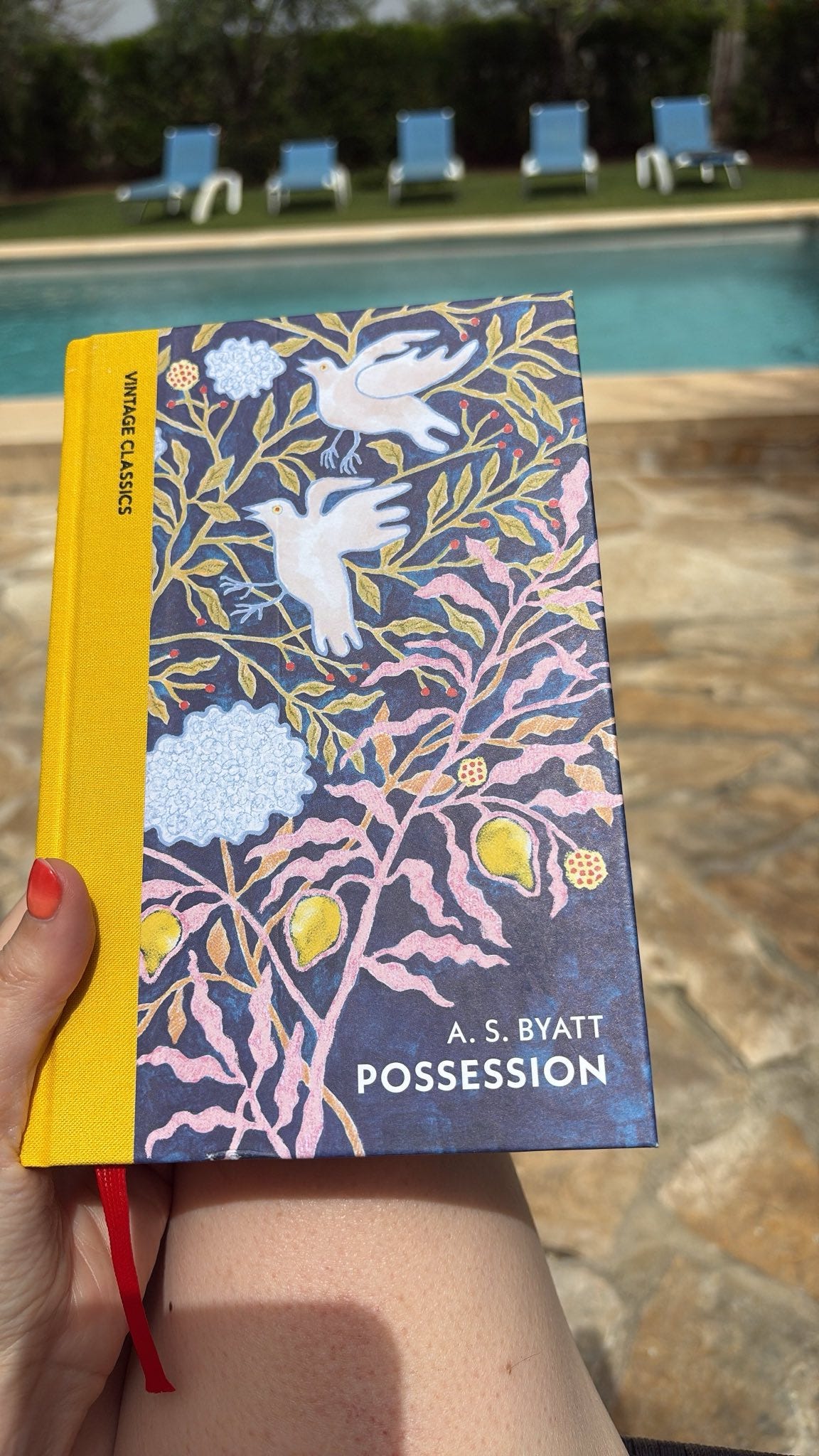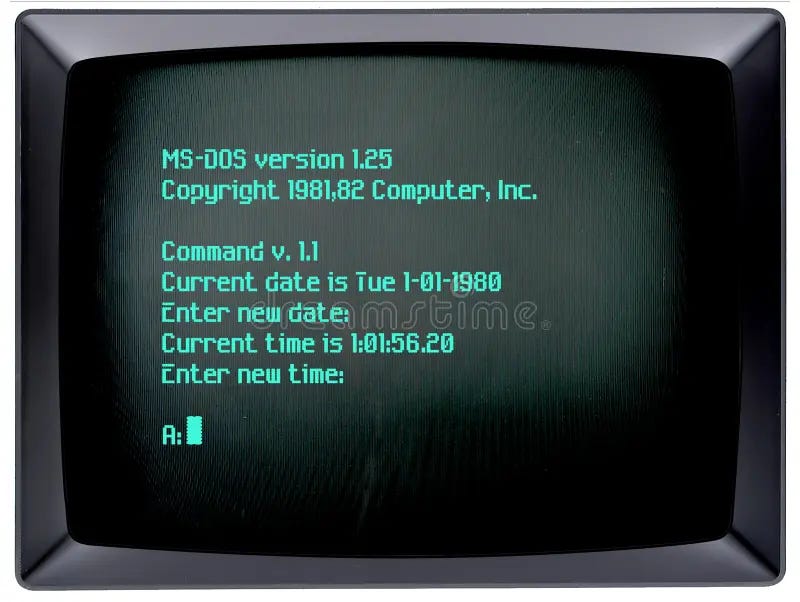A reader possessed
How rereading reframes our writing today
Last week, on holiday on an island, I sat by the pool and devoured a book. This wouldn’t bear special mention normally, as this is my standard operating procedure for any holiday, island or otherwise, pool or no pool.
But this book has reminded me of something I’d been hypnotized into forgetting: The rules about how books are supposed to be written change. They change often, and there is rarely a simple reason for the change.
‘Rules’ this book breaks:
Don’t jump between points of view within the same section, or the same chapter as it will confuse the reader
Make sure it’s very clear how the characters feel. Spell it out, in depth
Long sentences are unnecessarily complicated
People are intimidated by poetry — if characters are poets, include a line or two, but not whole poems
If there are jumps around in time, always make sure to ground the reader in these shifts so they don’t get lost, perhaps with time stamps or chapter titles
If you want your book to be read widely, write at a manageable reading level — perhaps grade 7-9 (age 12-15)
For the past few months, I’d been feeling a pull back to this book, one I first read in my early 20s, and remembered as a gripping and enjoyable read. When I found a beautiful edition in a favorite bookstore, I snapped it up and gave it part of the limited real estate in my suitcase, imagining the poolside reading as a holiday treat.
It was a treat, but it has also felt like cold water thrown on me, waking me up. When did we stop breaking the rules above? It’s not that we have always had these rules. These rules have appeared recently, and we used to have freedom to write very differently.
The book I’ve just finished is Possession by A.S. Byatt, and it won the Booker in 1995. Not only were these flouted rules accepted, they were celebrated, because at the time, they weren’t rules at all.

Now, were there other problems in publishing in the 90s?
Absolutely, not the least of which was the incredible elitism and limiting of a broader range of voices, backgrounds, and inclusion of the actual range of culture and experience that exists in the world. There, we have made a little progress in the years since Possession written, but not enough.
And in other ways, we have lost freedom to tell stories with huge range. There are exceptions, Hilary Mantel being one that comes to mind, but I found myself sitting by the pool, putting this book down in shock after reading what felt like an Olympic feat of language:
Did she really just pop into three different people’s heads in this scene?
Did she really just drop us into a scene in the past timeline with no clarity as to whether it was pure imagination on the part of some other character or a “real” event? And what is real anyway? And what is that word she just used. I have never heard or seen this word in my life.
I love “You mean we’re allowed to do that?” books.
When I read something that breaks rules I’ve long held as cannon, it makes me feel more space, permission to write differently. I treasure these books, and had forgotten to look for them in past decades. Possession has revealed another category for me:
You mean we USED to be allowed to do that?
Who says we can’t do this still? And what has created this enforcement of simple language and more limited time frames? Most books I read set in the recent past take place over a very short period of time in extreme focus, moments like they’ve been squeezed under a microscope, or squashed through a juicer.
This book, by contrast, stretched its limbs, carried me over years with relative ease. There were archives to explore, years of silence between characters, uncertainty about how to proceed.
It strikes me that, as we have become impatient for a text response from someone after a few minutes, we also don’t have the patience to stay with a story for more than a few days, or in some cases hours.
I miss this about books. I miss staying with a story for a longer period of time. Certain genres, of course, have these rules for a reason: murder mystery happens and gets solved more quickly, or else it’s no longer believable for the case to get solved at all. Perhaps this is why I love the cold case, the awareness of passing time, and the need to go slowly and pick through records, uncertain if anything will be discovered at all.
What would it look like if we were allowed to break the rules we take for granted?
There are many other shifts I notice in my reading these days, and I think this is a topic that could go on for ages.
In fact, I’ve been pondering a new project for Book Alchemy, and I’m curious if you’d like to join me?
How much do you feel trends in current literature impact your writing?
I feel like I’ve been startled awake and I can’t unsee the difference. It may be that this book being one I remember reading and thinking was excellent, but not rule-breaking, leaves me with the feeling that it represents a time capsule.
The 90s don’t feel that far back for me. (Showing my age here) as I was in school then and finished college just as the twentieth century ended.
In my dorm room, I had a clunky beige push-button phone. If I wanted to make plans with friends, I called them on their clunky beige phones, dialing only the last four numbers of their extension. When there was no answer, I may have left messages, but most often I shrugged and went out to do something on my own. Our campus was small, so I might run into them, but then again it was ok if I didn’t.

One friend, who was writing a play as his senior thesis, got caught in the crossfires of the technology advances. When we started college in 1995, the year Possession won the Booker, the computer lab contained small beige consoles with dark brown screens and either orange or green glowing text. We had to know the DOS prompts to get into email and to write and send it, as well as to get to the proto-word-processing program.
There was also a prompt where you could check when someone had last been online (popular with victims of unrequited love who have sent alluring emails to the object of their affection, not that I would know anything about this. Ahem.) The prompt was “finger” followed by the person’s email address, and we knew it was creepy even then. But I digress.
My friend had begun writing his play on the old system, and despite numerous offers from the college to help him move his work to the shiny new computers with screens that had icons much more familiar to today’s user, he refused to switch. As a result, he ended up ever deeper in the bowels of the library, banging away on the archaic screen as the bright white monitors slotted in the writing stations above. I don’t want to reject growth in this way, but there is something cozy about holding on to some traditions, especially in a library basement.

There has been progress and growth and so much improvement, but not my mind’s ability to hold the level of language this book was written in as a day-to-day read. I mean to get this skill back. I don’t want books like Possession to be holiday-only reading, when I have slept well and have a clear, minimally distracted brain. That’s too great a sacrifice. I’m unsure what changes I’ll have to make to keep my attention spacious enough to read long sentences and big words all the time.
But it’s a change I feel is necessary, if controversial. There is so much wonderful writing happening now. I only wonder if we removed these restrictions from writers, would they feel lost or set free?
Members: let’s get into this topic!
Are you able to write the way you want to write now, or are you banging up against rules like those above?
Which ones have you found? Please do share in the comments. I’m so eager to keep this conversation going. I hope very much that I’m not alone here.





This has been on my mind lately too. I almost always read at least one classic a year from a time when writing style was much different. I remember reading Middlemarch maybe a decade back and it was a struggle to stick with it, but also one of my favourite reading memories. I've realized that I haven't read anything in that category in this past year and I want to change that.
I also find myself bored with the same “formula” with every book. I was recently reading an enjoyable light book to ease my weary mind. I knew exactly what was going to happen next. In fact I knew how the whole book would transpire before I was a 1/3 of the way through. For an average reader it would work, and clearly it did since it was published. However once I was over being tired I walked away from it and found something more enjoyable. I don’t want to read or write inside a code. I’m a creative, not an engineer.